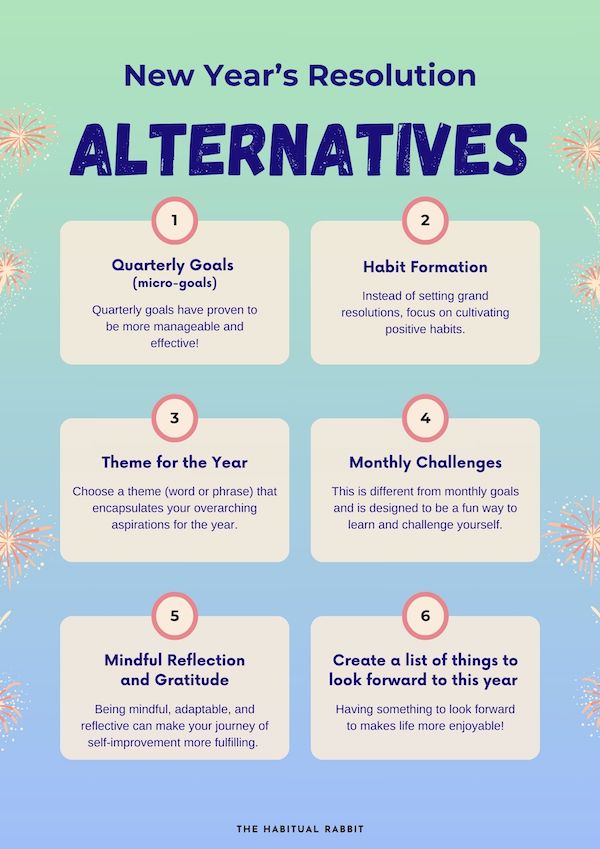
Welcome to the dawn of another year! Yes, we have reached that time of the year again, albeit this article comes a little earlier than the holiday season itself. And there’s a reason for that.
With the New Year just around the corner, I know how excited everyone can get about creating their New Year’s resolutions. It’s that time when we pledge to hit the gym regularly, eat healthier, or finally tackle that towering reading list. So, what’s the biggest item on that list of goals, always coming in at the #1 spot? Exercise.
“I’m gonna start working out!”
“This is the year, I’m going to stick to my workout goals!”
“If I start paying for a gym membership, then I’ll definitely stick to my goals!”
Does that sound like you?
You’re not alone. I once had this mindset as well, shelling out hundreds of dollars on a gym membership because I was certain that would force me to get to the gym and make it worth my investment. But then life got busy and I failed.
And I failed again and again and again.
What if I told you there’s a better way to embark on a journey of self-improvement without the need for those well-intentioned, yet often short-lived resolutions?
Table of Contents
- Why Traditional New Year’s Resolutions Don’t Work
- New Year’s Resolution Alternatives
- Quarterly goals (or micro-goals)
- Habit formation
- Theme for the year
- Monthly challenges
- Mindful reflection and gratitude
- Create a list of things to look forward to this year
- Strategies for Staying Consistent and Sticking to Your Goals
- Start small
- Celebrate progress
- Accountability partners
- Learn from setbacks
- Create a supportive environment
Why Traditional New Year’s Resolutions Don’t Work
Let’s be real — the statistics are not on our side. Research suggests that around 80% of New Year’s resolutions fizzle out by mid-February. Want proof? Observe the gym membership and attendance data for the first three months of the new year. You’ll start to see exactly what I’m talking about.
The problem, though, isn’t our goals. The problem is in the very nature of traditional resolutions. Psychologists point out that the arbitrary timing of New Year’s resolutions, coupled with their often vague and unrealistic nature, sets us up for failure. When we set goals with no clear action plan, they simply become elusive dreams.
So, as we gear up to bid farewell to the old and embrace the new, perhaps it’s time to rethink the traditional way of goal setting and consider a more mindful approach to self-improvement. After all, small, consistent changes tend to outlast the excitement of January’s enthusiasm.

New Year’s Resolution Alternatives
Here are some alternatives that Kevin and I have implemented into our lives over the past few years. And no, we didn’t start this during a new year time frame; it was a random week of a random month when we decided to start embarking on a new way of making goals.
And you can too!
Quarterly goals (or micro-goals)
This is exactly what it sounds like. Instead of creating a goal that you have to stick to for the entire year, quarterly goals have proven to be more manageable and effective. You can start by breaking the year into quarters and setting specific, measurable goals for each period. Then, at the end of each quarter, assess and reflect on your goals and make adjustments for the next quarter.
You can also create micro-goals! This one’s my favorite; it’s just more manageable for me. You can divide the timeframe however you’d like, but typically this looks like monthly goals. If you have a main goal that takes more time to achieve, then you can set monthly micro-goals that will lead you to achieve the main goal, like baby steps!
For example, if your goal is to lose weight or achieve some grand fitness level, you can plan backward and set weekly or monthly goals with smaller steps toward achieving the end goal. Breaking things down into smaller, actionable steps, makes each task more approachable, and you’re more likely to stick to it! Which leads us to the next step…
Habit formation
Sometimes we focus too much on the goal we want to achieve, the actual thing itself, and not so much the actions or behaviors that will get us there.
Here’s a personal story: for a long time, I always wanted to be an early riser. I admired those who could wake up and work out at 5:00 am. I had such a huge problem with snoozing and oversleeping, I could never wake up early! Until I started to change my nighttime habits and routine. I realized that waking up early requires a specific set of habits the night before. So, I implemented a bedtime routine that starts two hours before I actually go to bed so that I can be in bed by 8:30 pm. Voila, an early riser was born! (this actually took a whole year to accomplish)
Instead of setting grand resolutions, focus on cultivating positive habits. Identify small, actionable changes that align with your broader goals and work on incorporating them into your daily routine. Over time, these habits become ingrained in your body, inevitably leading to a longer-lasting transformation.
Theme for the year
This is a fun one. Choose a theme (word or phrase) that encapsulates your overarching aspirations for the year. Whether it’s “Mindfulness,” “Adventure,” or “Learning,” this thematic approach provides flexibility while maintaining a consistent focus on personal growth. It’s a more fluid and adaptable way to guide your choices and actions. You can even follow this theme with the micro-goals mentioned above!
“Nudge Word” is a similar concept. Instead of setting a specific goal, choose a word that captures the mindset you want to adopt for the year — a word that will nudge you toward positive change whenever you think of it. I like to write down my theme or nudge word and put it somewhere I can see every day; this really helps to solidify the changes I want to make and goals I want to achieve!
Monthly challenges
This is different from monthly goals and is designed to be a fun way to learn and challenge yourself. You don’t have to do a challenge every month, but every now and then, a monthly challenge can be exciting!
These challenges can range from fitness goals to learning a new skill. The variety keeps things engaging, and each month becomes a fresh opportunity for growth and exploration. You can align these challenges with your larger goal, or they can simply be small challenges aimed at having some fun.
Mindful reflection and gratitude
This was one of my first goals when I started my self-development and healing journey. Practicing mindfulness really changed my life; I would go as far as to say that perhaps, it has saved my life. I started with gratitude journaling and from there, began meditating daily. This practice has really shifted my perspective on life and in turn, my behaviors.
It’s important to regularly reflect on your life and the goals you have for yourself. It’s equally important to be open to adjustments. Life is dynamic, and circumstances change. By staying mindful and adaptable, and reflecting often, you can fine-tune your objectives as needed, making your journey of self-improvement more fulfilling.
Create a list of things to look forward to this year
By creating a list of things to look forward to in the new year, you become more hopeful and excited to take on new challenges and adventures. Having something to look forward to makes life more enjoyable. Maybe you have a grand vacation planned with friends or family. Maybe you’re graduating. But your list doesn’t have to be anything super significant or big; it can be smaller things like a movie release date, an album release, or a new restaurant opening.
Throughout the year, Kevin is always telling me about new movies coming out for the next year because that’s his thing and that’s what keeps him excited. I didn’t really care too much before, but now, I look forward to hearing his list and the movies that are coming, especially after all the streaming wars and strikes.

Strategies for Staying Consistent and Sticking to Your Goals
Embarking on a journey of self-improvement is one thing; staying on course is another. I honestly believe that each and every one of us truly wants to achieve our goals. We like making goals! The problem is our discipline and consistency.
Through our personal experience, we’ve learned some tricks that have helped us stay consistent with our goals. So, here are some strategies to help you stay committed to yours:
Start small
Begin with manageable steps. Setting small, achievable goals allows for a sense of accomplishment, motivating you to tackle more significant challenges over time. For me, I always start by creating my monthly goals, and then I break that down into weekly goals to make each task more manageable.
Celebrate progress
Always acknowledge and celebrate your victories, no matter how small! Recognizing your achievements boosts motivation and reinforces positive behavior. Celebrating the smaller milestones keeps us moving forward to achieving bigger things. I love to take every opportunity I can to celebrate (in my own way) the small, daily wins.
Accountability partners
Share your goals with a friend or family member who can provide support and hold you accountable. Having someone to share your successes and challenges with makes the journey more enjoyable and less daunting.
When I lived in Vietnam and started my clothing brand, Stay Hydrated, I had an accountability partner who was a chef and had just started her in-home dining experience. I can’t tell you how helpful it was to just have someone to check in with every week, even if it’s for 5-10 minutes just so we can say whether or not we achieved our weekly goal. We held each other accountable and quite honestly, it really motivated me to check off each task!
Learn from setbacks
We are our own worst critic. We tend to judge ourselves and be harder on ourselves than we are with other people. But it’s important to understand and remind ourselves that setbacks are a natural part of any journey.
I personally struggle with this all the time. However, over the past few years, I’ve learned to actively look at things from a different perspective whenever I am too hard on myself. Instead of viewing some setbacks as failures, I try to see them as opportunities to learn and grow. The most important part is that we learn how to make adjustments from these setbacks.
Create a supportive environment
Have you ever heard the African proverb, “If you want to go fast, go alone. If you want to go far, go together”? You might think that you’re embarking on this journey alone, but no one ever accomplishes anything all by themselves. We need a support system and a positive environment in order to grow and achieve our goals.
A supportive environment significantly impacts our ability to not only stay focused but to be motivated, especially during challenging times. So whoever you choose to be in your inner circle, choose carefully.
Final Thoughts
It’s totally normal to slip into the excitement of a new year and new resolutions; new promises you hope to keep for real this time. But let’s make this process easier for ourselves. Traditional New Year’s resolutions are vague, unrealistic, and oftentimes, lack clear action steps and accountability.
Let’s start the year right with these suggestions and actually follow through with our more achievable goals. We hope this article has convinced you to take a different approach to the traditional New Year’s resolutions and embark on a new journey towards your goals this coming year!
